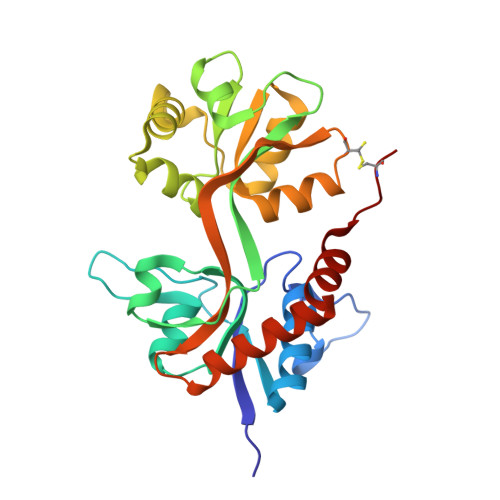Binding site and ligand flexibility revealed by high resolution crystal structures of GluK1 competitive antagonists.
Alushin, G.M., Jane, D., Mayer, M.L.(2011) Neuropharmacology 60: 126-134
- PubMed: 20558186
- DOI: https://doi.org/10.1016/j.neuropharm.2010.06.002
- Primary Citation of Related Structures:
2QS1, 2QS2, 2QS4 - PubMed Abstract:
The availability of crystal structures for the ligand binding domains of ionotropic glutamate receptors, combined with their key role in synaptic function in the normal and diseased brain, offers a unique selection of targets for pharmaceutical research compared to other drug targets for which the atomic structure of the ligand binding site is not known. Currently only a few antagonist structures have been solved, and these reveal ligand specific conformational changes that hinder rational drug design. Here we report high resolution crystal structures for three kainate receptor GluK1 antagonist complexes which reveal new and unexpected modes of binding, highlighting the continued need for experimentally determined receptor-ligand complexes.
Organizational Affiliation:
Laboratory of Cellular and Molecular Neurophysiology, Porter Neuroscience Research Center, NICHD, NIH, DHHS, Bethesda, MD 20892, USA.

















